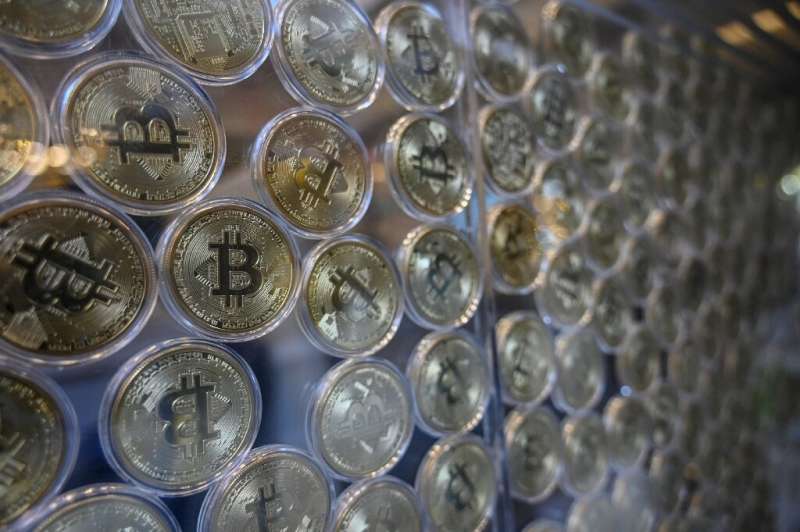Turkey probes second crypto exchange as market implodes

Turkey on Saturday detained the chief of one of the country's biggest cryptocurrency firms after launching a manhunt for the founder of another exchange who fled to Albania.
The Turkish crypto boom threatens to go bust quickly as companies fold and President Recep Tayyip Erdogan's government prepares to rein in the unregulated digital currency market.
The volume of crypto purchases in the nation of 84 million people rose 10-fold between November and March as Turks sought ways to preserve their savings during a steep drop in the value of the lira currency.
But the market began to unravel when the Istanbul-based Thodex exchange's founder Faruk Fatih Ozer fled to Albania with a reported $2 billion in investors' assets this week.
Thodex shut down while holding investments from nearly 400,000 users.
Turkey issued an international arrest warrant and detained dozens of Thodex employees in raids staged across the country on Friday.
Officials also blocked the account of the Vebitcoin exchange—one of Turkey's five-largest—and launched an investigation after it also abruptly ceased operations.
Local news reports said police detained Vebitcoin chief executive Ilker Bas and three other company employees on Saturday as part of a broader fraud probe.
"Due to the recent developments in the crypto money industry, our transactions have become much more intense than expected," Vebitcoin said on its website.
"We would like to state with regret that this situation has led us to a very difficult process in the financial field. We have decided to cease our activities in order to fulfil all regulations and claims."
Stolen wallets
Data shared with AFP by the Chainalysis and Kaiko analytics firms show the daily volume of all crypto purchases in Turkey rising from around 500 million liras ($60 million) in November to as much as six billion liras in March.

Coinhills ranks Turkey as the fifth-biggest crypto market in the world.
It could be bigger still because many Turkish traders use popular off-shore exchanges in countries such as Malta.
But Erdogan's government is preparing to tighten regulations after deciding to ban cryptos from being used for purchases of goods and services starting on April 30.
The Turkish central bank warned last week that cryptocurrencies "entail significant risks".
"Wallets can be stolen or used unlawfully without the authorisation of their holders," the central bank said.
The problems at Thodex started after it ran a promotion offering Dogecoins to investors at one-fourth the price the popular currency was selling on other exchanges.
But Thodex users complained that it was a scam that prevented them from re-selling the coins at their full market value or trading them for other cryptos.
Turkish prosecutors accused Ozer of "aggravated fraud and founding a criminal organisation".
The tumult in Turkey created ripples across the global crypto market and saw the value of bitcoin slip back under $50,000 after reaching $57,000 at the start of the week.
Analysts say the lack of oversight makes users more susceptible to fraud in Turkey than they would be in countries, where digital trades are reported to officials and taxed.
"Because cryptocurrency is currently unregulated (in Turkey), it could be more vulnerable to abuse and illicit activity," Chainalysis's government affairs chief Jesse Spiro told AFP.
"In general, regulations help build trust in this new asset class. On the other hand, the instability of the lira could make cryptocurrency more attractive."
© 2021 AFP





















